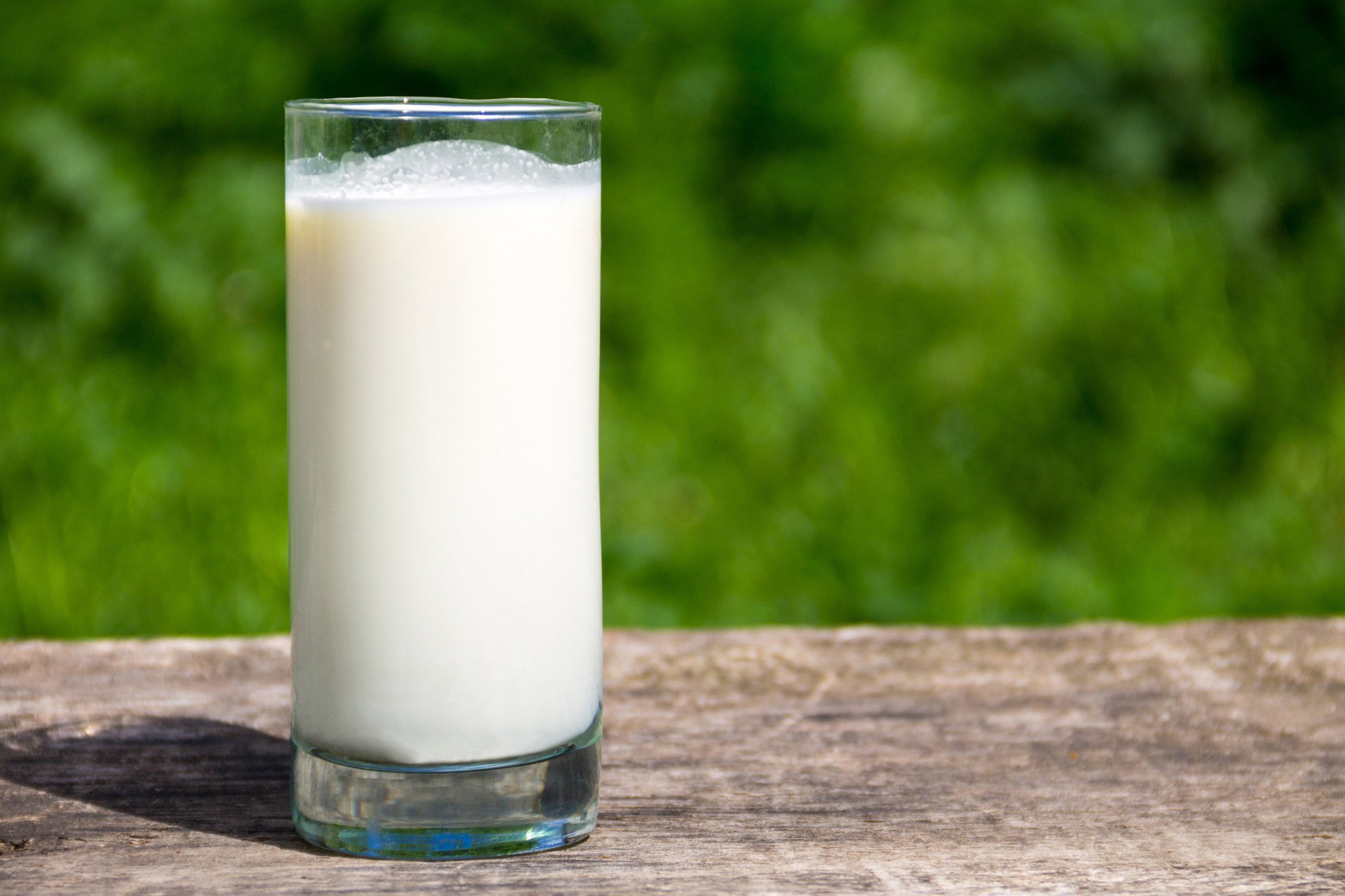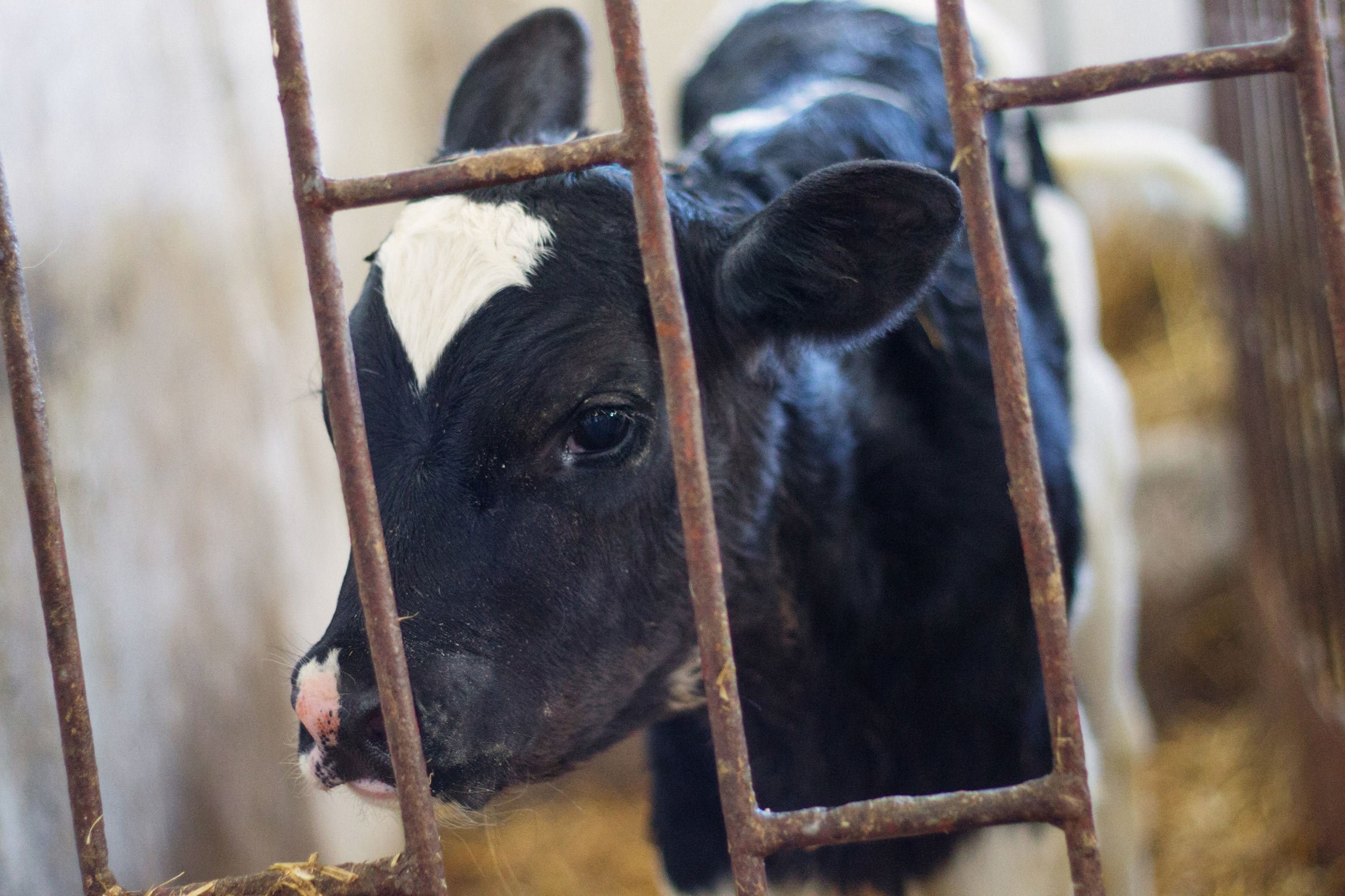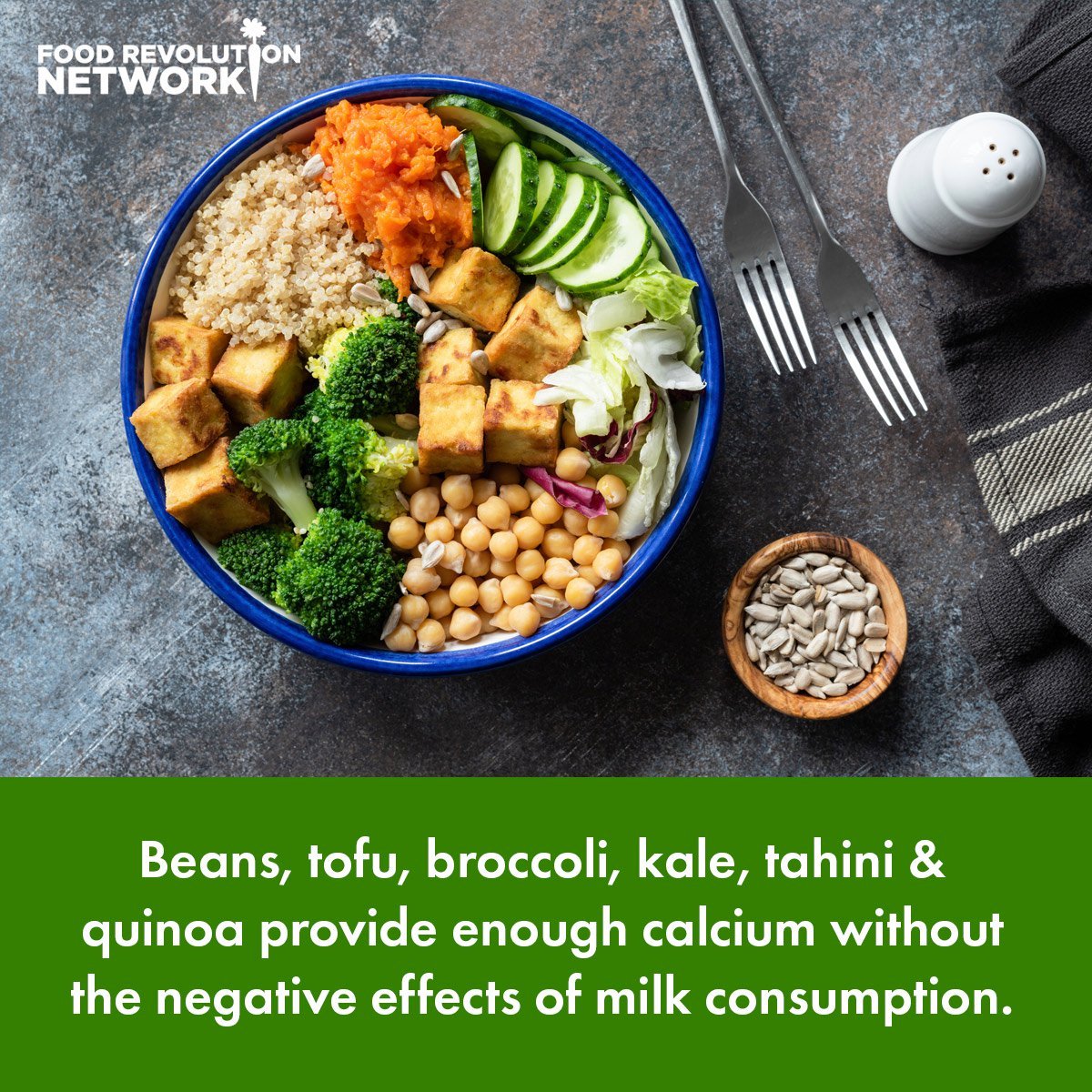Discover the truth about milk that the dairy industry doesn’t want you to know.
By Neal Barnard, MD • A version of this article was originally published in Good Medicine, a magazine from the Physicians Committee for Responsible Medicine.
The 2012 report published in the Archives of Pediatric and Adolescent Medicine must have rattled the dairy industry. Authored by Kendrin Sonneville from Harvard University, the study tracked fracture rates in 6,712 adolescents. The results showed that active children who consumed the largest quantities of milk actually had more bone fractures than those who consumed less.
In other words, milk doesn’t actually build strong bones.
Previous studies have shown similar findings. Studies of young women published in the journals Bone and Pediatrics show that bone density was bolstered by physical activity but that increased calcium intake made no difference.
Evidence suggests that milk is similarly unhelpful at the other end of the lifespan when osteoporosis and bone breaks are particularly common.
The Harvard Nurses’ Health Study, which followed more than 72,000 women for 18 years, showed no protective effect of increased milk consumption on fracture risk. Those women who consumed the most milk were as likely to suffer a hip fracture as those who avoided milk.
The Dairy Industry’s Faltering Credibility

The milk-builds-strong-bones claim was not the first to collapse under scrutiny. In 2005, the Physicians Committee for Responsible Medicine (PCRM) petitioned the Federal Trade Commission (FTC) to examine industry advertising claiming that milk could cause weight loss.
A multimillion-dollar, celebrity-filled ad campaign was based on the findings of a single Tennessee researcher who reported that, in small numbers of people, dieters who included milk in their low-calorie diet plans lost more weight than dieters who left milk out. Other researchers were not able to replicate the finding.
In response to PCRM’s petition, the FTC’s Division of Advertising Practices met with U.S. Department of Agriculture staff who oversaw the campaign and representatives of the National Fluid Milk Processor Promotion Board and the National Dairy Promotion and Research Board who agreed to discontinue all advertising and other marketing activities involving weight-loss claims.
The decision also applied to Dairy Management Inc., which was created to increase demand for U.S.-produced dairy products on behalf of America’s dairy product producers.
The Truth About Milk: More Troubling Findings About Dairy
The studies disproving milk’s benefits for bones or weight loss turned out to be the tip of a scientific iceberg.
A Harvard study of 20,885 men published in 2001 showed that men having 2 1/2 servings of dairy products daily had a 34% increased risk of prostate cancer, compared with men consuming little or no dairy products.
A separate Harvard study, this one including 47,871 men, had shown much the same thing — men having two or more milk servings each day had a 60% increased risk of prostate cancer.
The scientific issue of most concern to public health officials is the load of fat in dairy products. The 2010 Dietary Guidelines for Americans described the sources of saturated fat — the “bad” fat that leads to heart disease and other health problems — in the American diet. Dairy products turned out to be the biggest source.
Typical cheeses are about 70% fat, much of which is saturated fat. Skimming the fat from milk leaves a drink loaded with sugar. Lactose sugar contributes more than 55% of skim milk’s calories, giving it a calorie load similar to soda.
Cow’s milk consumption by infants and toddlers is linked to type 1 diabetes and to anemia. As children reach their teen years, many experience cramps and diarrhea due to lactose intolerance. This is especially true for those of African, Asian, Hispanic, Native American, or Mediterranean heritage.
Editor’s note: As infants, our bodies produce a digestive enzyme called lactase, which breaks down lactose from mother’s milk. But as we grow up, many of us lose the ability to do that, experiencing significant digestive problems when drinking cow’s milk. By adulthood, about three-quarters of the world’s population is unable to break down lactose. The only ethnic group on the planet that can usually digest lactose is Caucasians. Most people of African, Asian, Arab, and Indigenous ancestries cannot.
The Ethical and Environmental Impacts of Dairy

A cow on a modern farm may produce more than 20,000 pounds of milk per year. To maintain maximal milk production, farmers impregnate cows annually, inserting one arm into the cow’s rectum while using the other to insert a long metal rod holding semen into the cow’s vagina.
Male calves born through this process cannot join the dairy herd and are placed in crates to be raised as veal. The female calves are often dehorned, typically without anesthesia.
The 60,000 dairy farms in the United States also contribute methane — the product of ruminant digestion — a greenhouse gas that is 25 times more potent than carbon dioxide. The production of dairy products generates the third highest level of greenhouse gas emissions of commonly consumed foods.
Editor’s note: The world’s top five meat and dairy corporations are now responsible for more annual greenhouse gas emissions than ExxonMobil, Shell, or BP.
Healthy, Plant-Powered Calcium Sources
Calcium is an essential nutrient. But non-dairy sources of calcium such as beans, tofu, broccoli, kale, collard greens, bread, cereals, and non-dairy, calcium-fortified beverages provide adequate calcium without any of the health, ethical, or environmental detriments associated with milk consumption.
Tell us in the comments:
-
Does the truth about milk surprise you?





